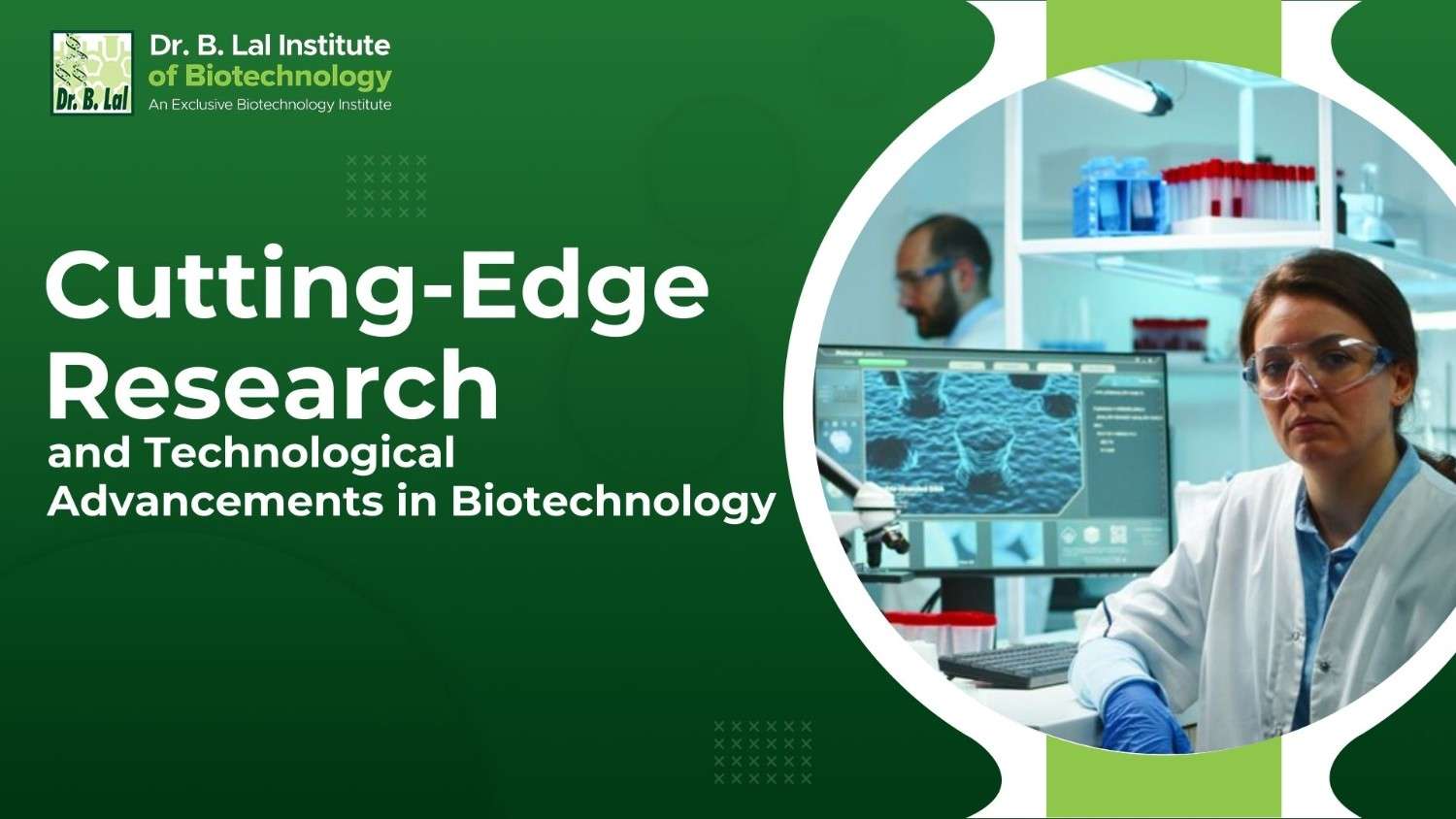
Cutting-Edge Research and Technological Advancements in Biotechnology
Biotechnology is changing medicine, agriculture, and environmental science. It uses cellular and biomolecular processes to create technologies and products that benefit our lives and the planet. This blog explores current research and advancements shaping the future of biotechnology.
CRISPR Technology: A Genetic Revolution
CRISPR-Cas9 is a revolutionary gene-editing tool that has completely changed genetic research. Scientists can use this technology to edit genes very precisely, efficiently, and flexibly. It works by pinpointing exact DNA sequences and cutting them, which allows for the removal or replacement of faulty genes. This tool shows potential for treating genetic conditions such as cystic fibrosis, sickle cell anemia, and muscular dystrophy.
Recent advancements in CRISPR technology have broadened its applications. Scientists are now investigating its potential in agricultural biotechnology for developing crops resistant to pests and diseases, with improved nutrition and adaptability to climate change. Moreover, CRISPR is utilized in synthetic biology to engineer microorganisms for biofuel production, waste management, and the creation of sophisticated pharmaceuticals.
Stem Cell Research: The Frontier of Regenerative Medicine
Stem cell research in biotechnology is making rapid progress. Stem cells can transform into different cell types, which is crucial for regenerative medicine. Researchers use them to study diseases, create new therapies, and explore ways to heal damaged tissues and organs.
Recent advancements in stem cell research have introduced induced pluripotent stem cells (iPSCs), which are created from adult cells and transformed into an embryonic-like state. This method offers an ethical way to obtain pluripotent stem cells. iPSCs could transform personalized medicine by allowing the generation of patient-specific cells for disease modeling, drug testing, and cell therapy.
Synthetic Biology: Engineering Life
Synthetic biology blends biology, engineering, and computer science to create new biological entities. It's revolutionizing biotechnology by making synthetic organisms and innovative biological systems.
Synthetic biology has made a breakthrough with synthetic genomes. Scientists have built an entire bacterium genome, opening doors to creating artificial life forms. These organisms can be engineered to make biofuels, medicines, and more. Synthetic biology also innovates biosensors for tracking environments and detecting diseases.
Bioprinting: The Future of Tissue Engineering
Bioprinting, a type of 3D printing, is transforming tissue engineering and regenerative medicine. It uses bio-inks containing living cells to print intricate tissue structures. This technology aims to create personalized tissues and organs for transplants, lessening reliance on donor organs and preventing rejection risks.
Recent advancements in bioprinting now involve multi-material bioprinters capable of printing tissues with different cell types and mechanical properties. Researchers are also focusing on creating vascularized tissues, crucial for nourishing printed tissues with nutrients and oxygen. These innovations in bioprinting promise to revolutionize healthcare by offering personalized and efficient treatments for injuries and diseases.
Microbiome Research: Understanding the Invisible World
The human microbiome includes trillions of microorganisms living in and on our bodies. It's vital for our health. Research shows how these microorganisms interact with us, helping us understand and treat diseases better.
Recent studies indicate that the gut microbiome influences health conditions like obesity, diabetes, and mental health. Scientists are investigating how diet, probiotics, and microbiome transplants can be used to improve health and treat diseases. Microbiome research is also being used in agriculture to create sustainable farming practices and enhance crop productivity.
Immunotherapy: Harnessing the Immune System
Immunotherapy is a groundbreaking cancer treatment that uses the body’s immune system to fight and eliminate cancer cells. It includes immune checkpoint inhibitors, CAR-T cell therapy, and cancer vaccines, bringing new hope to cancer patients.
Recent research in immunotherapy aims to make it work better and help more people. Scientists are trying new combinations of chemotherapy and radiation. They're also creating personalized treatments based on each tumor's genes to improve how well they work.
Conclusion
Biotechnology is experiencing remarkable progress through innovative research and advanced technologies. These developments are changing medicine, agriculture, and environmental science, providing solutions to critical global challenges.
At Dr. B Lal Institute of Biotechnology, students are part of cutting-edge developments. They have access to advanced facilities and support for innovative research, creating a nurturing environment for aspiring biotechnologists. Here, students engage in pioneering research projects, gaining hands-on experience and contributing to biotechnology advancements.
Dr. B Lal Institute of Biotechnology is leading the way with cutting-edge trends and technology, preparing future scientists and innovators to push biotechnology's limits.
To Know More - BIBT's Early Bird Scholarship Program
- Explore the latest research trends and technological advancements in biotechnology, including CRISPR, stem cell research, synthetic biology, and more.
Made it this far? That means you're curious—and we love that! Ready to test your passion for biotechnology? Click below to find out 👇🏻
Biotechnology Aptitude Test




Your email address will not be published. Required fields are marked *